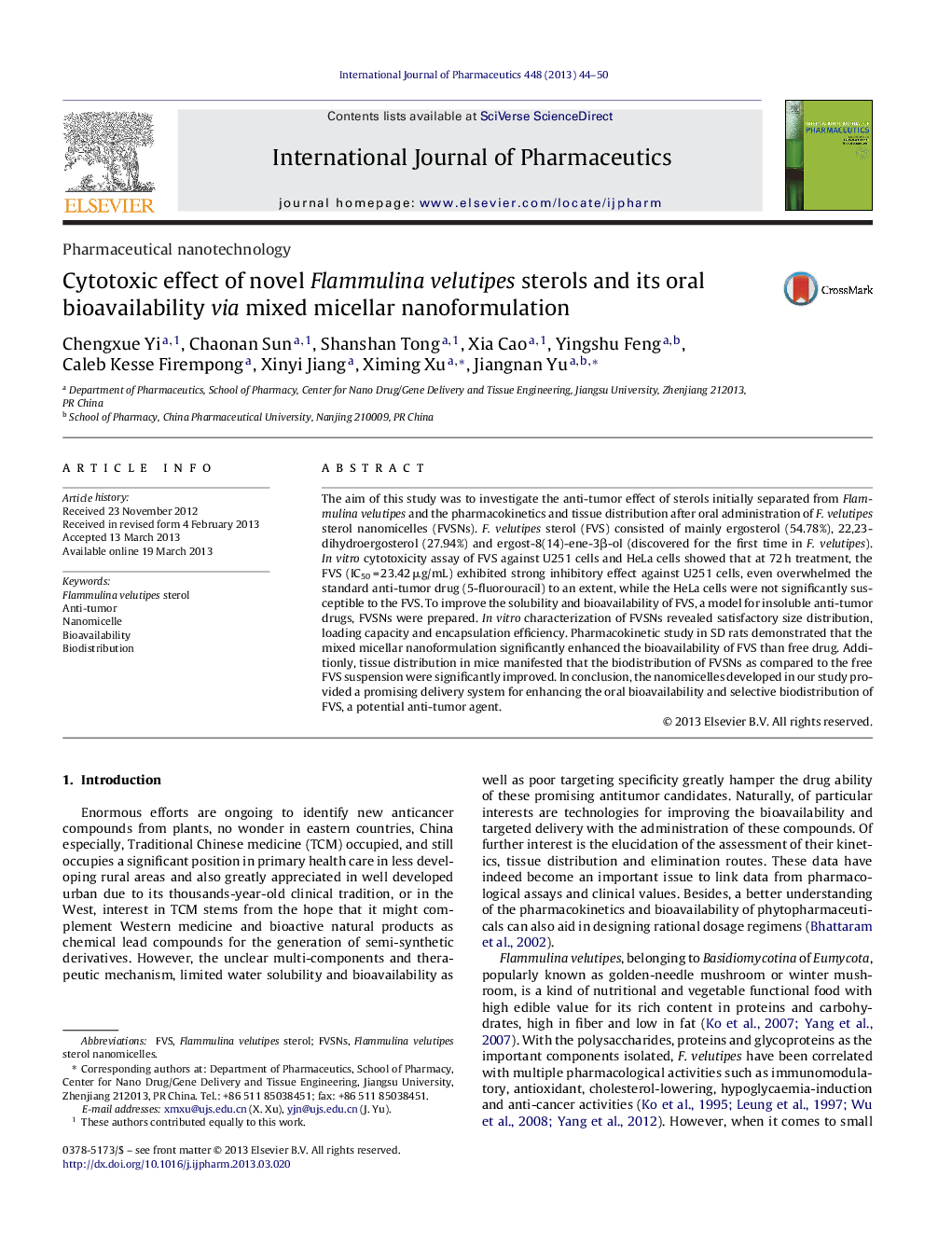| Article ID | Journal | Published Year | Pages | File Type |
|---|---|---|---|---|
| 2502542 | International Journal of Pharmaceutics | 2013 | 7 Pages |
The aim of this study was to investigate the anti-tumor effect of sterols initially separated from Flammulina velutipes and the pharmacokinetics and tissue distribution after oral administration of F. velutipes sterol nanomicelles (FVSNs). F. velutipes sterol (FVS) consisted of mainly ergosterol (54.78%), 22,23-dihydroergosterol (27.94%) and ergost-8(14)-ene-3β-ol (discovered for the first time in F. velutipes). In vitro cytotoxicity assay of FVS against U251 cells and HeLa cells showed that at 72 h treatment, the FVS (IC50 = 23.42 μg/mL) exhibited strong inhibitory effect against U251 cells, even overwhelmed the standard anti-tumor drug (5-fluorouracil) to an extent, while the HeLa cells were not significantly susceptible to the FVS. To improve the solubility and bioavailability of FVS, a model for insoluble anti-tumor drugs, FVSNs were prepared. In vitro characterization of FVSNs revealed satisfactory size distribution, loading capacity and encapsulation efficiency. Pharmacokinetic study in SD rats demonstrated that the mixed micellar nanoformulation significantly enhanced the bioavailability of FVS than free drug. Additionly, tissue distribution in mice manifested that the biodistribution of FVSNs as compared to the free FVS suspension were significantly improved. In conclusion, the nanomicelles developed in our study provided a promising delivery system for enhancing the oral bioavailability and selective biodistribution of FVS, a potential anti-tumor agent.
Graphical abstractFigure optionsDownload full-size imageDownload high-quality image (233 K)Download as PowerPoint slide
